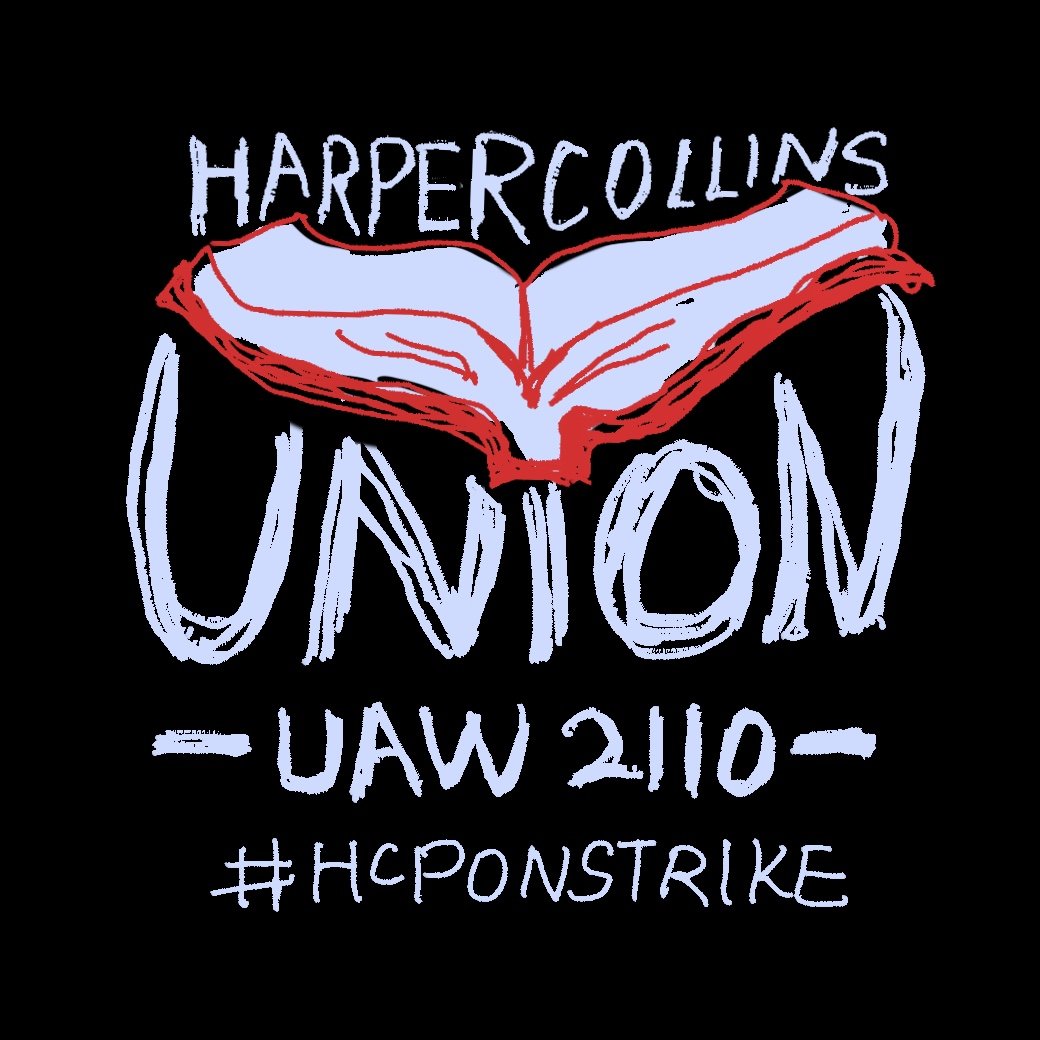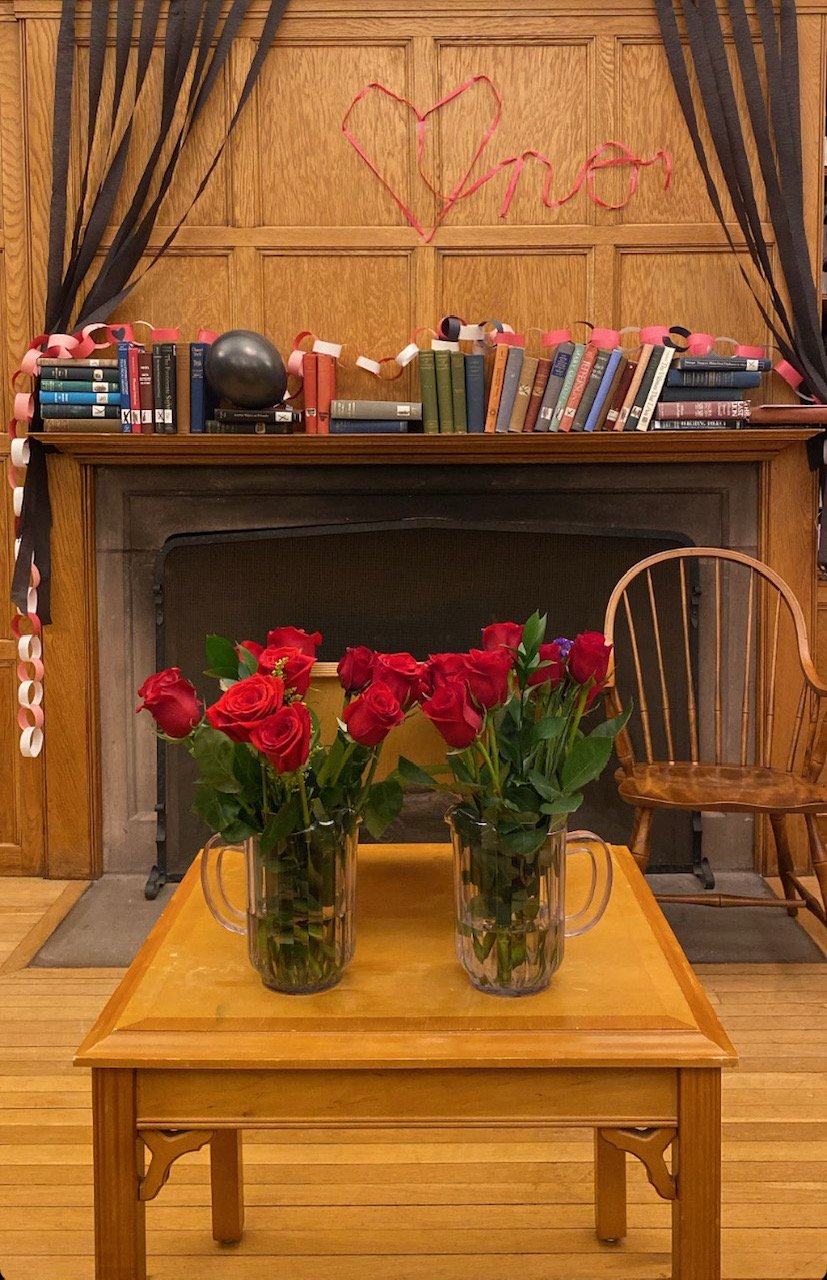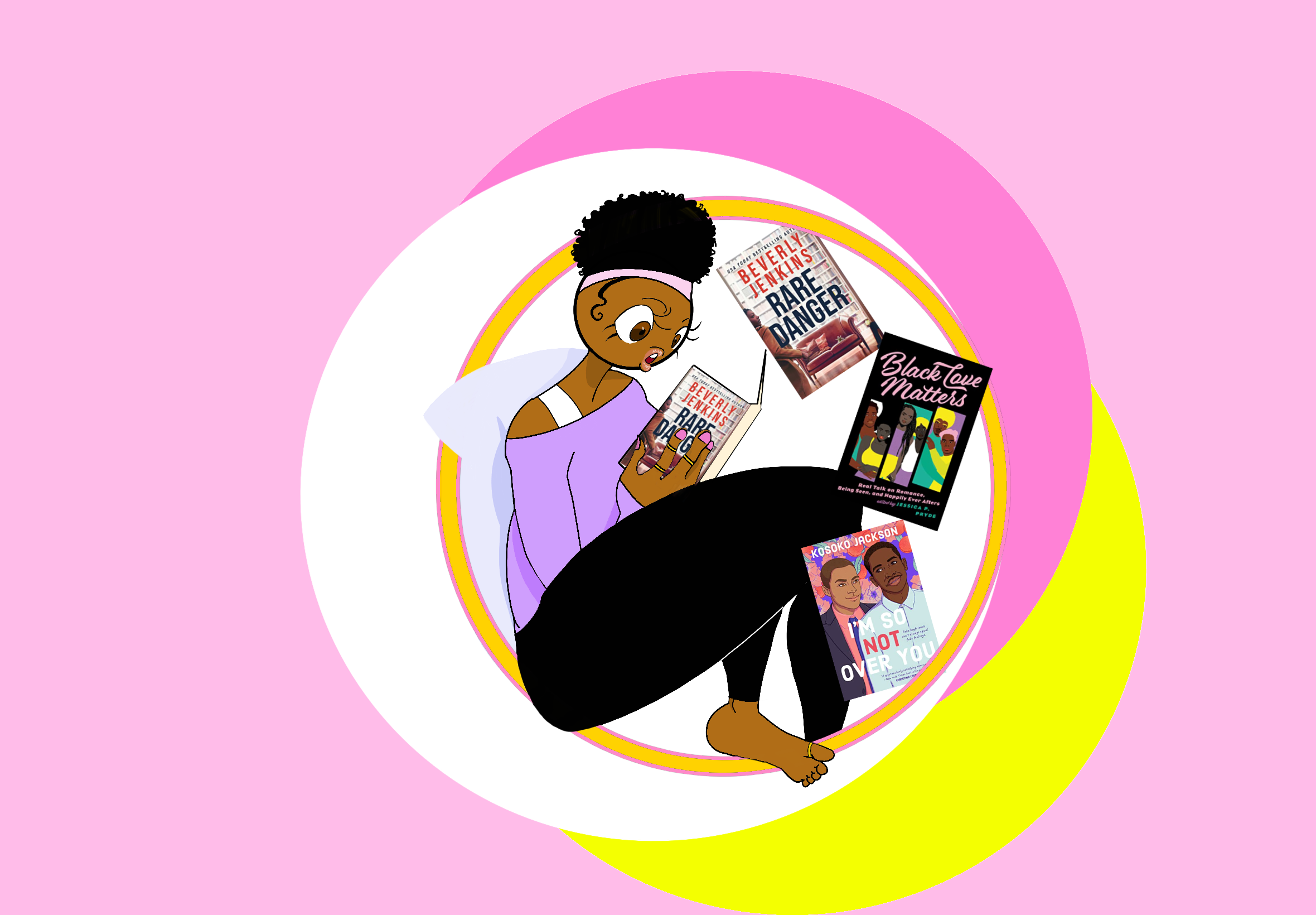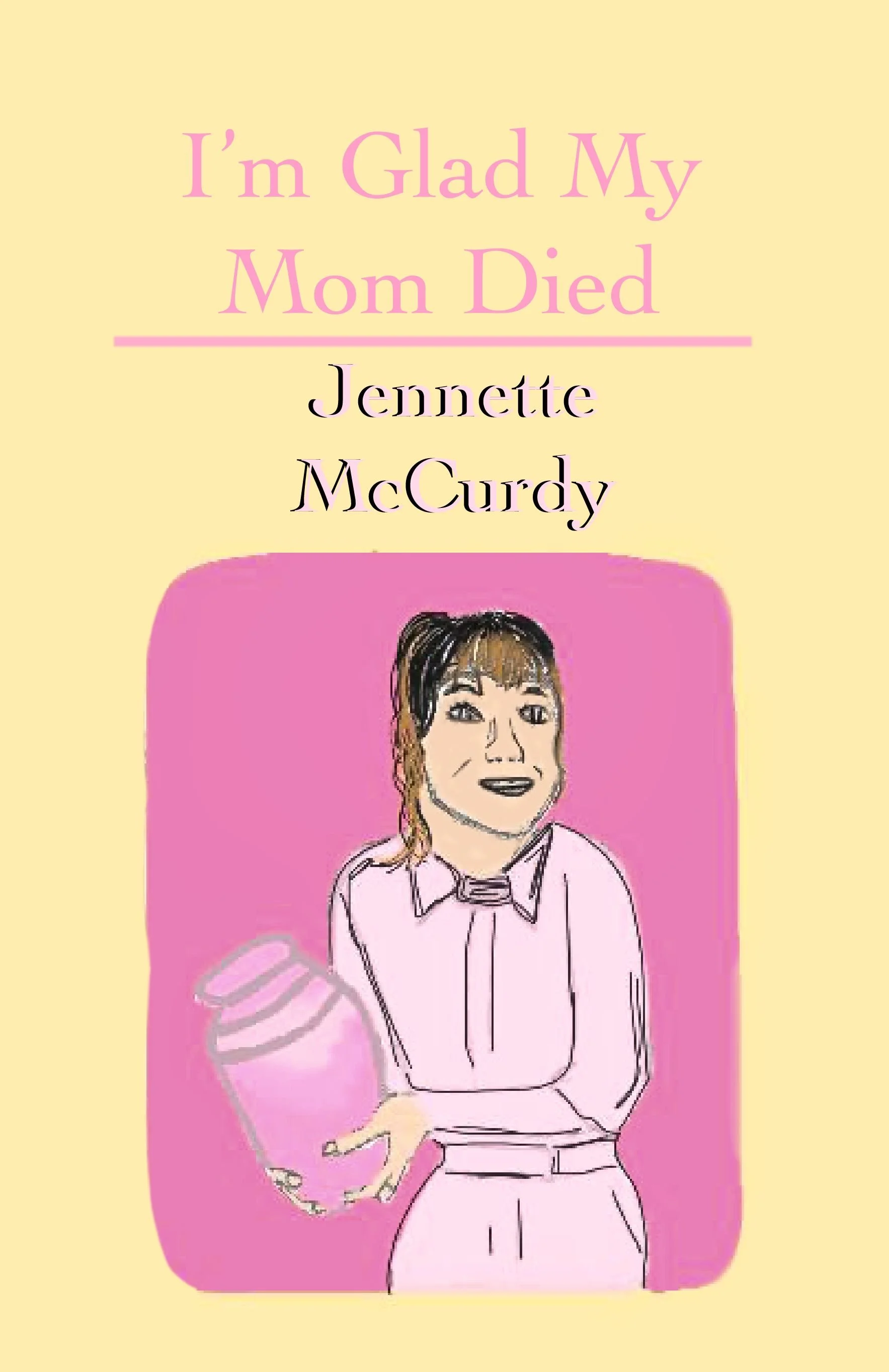Spotify recently announced a new benefit for Premium users that would give them free access to audiobooks for a total of 15 hours each month. The new feature, announced on Oct. 3, will make more than 150,000 audiobooks on the platform available for Premium users – though this does not include Spotify’s entire audiobook catalog.
Students on access to online libraries amid Archive suit
New student-run book club aims to make leftist theory accessible
Horror, comics and history: Three books to check out for Indigenous Peoples’ Day
J. Vanessa Lyon speaks at Odyssey Bookshop on new novel
A queer romance set in Harlem’s art scene is the subject of “Lush Lives,” the first fiction book published by author J. Vanessa Lyon under her own name. On Tuesday, Sept. 12, the Odyssey Bookshop invited Lyon to speak about the book, marking Lyon’s first bookstore reading. Prior to “Lush Lives,” Lyon wrote “The Groves,” an Audible original, and “Meet Me in Madrid” under the pseudonym of Verity Lowell. Lyon is an art history professor at Bennington College, a liberal arts college in Vermont, and her academic background shines through in “Lush Lives.” The book’s protagonist, Glory, explores the rich and storied history of the Harlem Renaissance, a time when Black creativity in the arts flourished, and how it connects to her own experiences in the modern day.
Rick Riordan and Mark Oshiro celebrate the complications of queer humanity in new novel
Book bans continue to rise
Book banning is no new concept; for several centuries it has remained a galvanizing issue within U.S. politics. According to the Harvard Library, the first recorded instance of book banning in the U.S. occurred in Quincy, Massachusetts, back in 1637. Recently, The New York Times has reported a drastic increase in book-banning efforts in schools within the United States.
Usage of AI spikes in publishing
With the popularity of chatbots like ChatGPT on the rise, the functions of artificial intelligence have garnered greater interest around the world. In the publishing industry, AI has been used in two distinct ways for content creation. On an individual basis, AI has been used to generate stories to send to magazines that are accepting submissions or to upload to self-publishing platforms. On a larger scale, companies have begun to use AI to create content for their websites.
Poetry to read: work by the 2023 Glascock contest judges
By Emma Platt ’26
Staff Writer
The Glascock Poetry Contest took place last week during the first weekend of National Poetry Month and featured work by students from across New England. The competition was judged by poets Eileen Myles, Evie Shockley and Hoa Nguyen. These established poets read selections of their work on the Saturday of the competition, but could only showcase a small portion of their work. For those wishing to explore more of their poetry, here are three more works by these authors.
“Prophesy” by Eileen Myles
In this poem, Myles uses both humor and evocative and odd imagery to transport the reader into a strange world that Myles writes from. Down to their writing utensil being “the devil’s cock” which is like “a fat burnt crayon.” Myles uses the Devil as a clear reference to the personification of pure evil. The poem is in free verse and lacks punctuation except for one period in the middle.
Myles is from Cambridge, Massachusetts, and is a graduate of UMass Boston. They have published twenty volumes of both poetry and prose fiction as well as art journalism and libretto work. They have received four Lambda Book Awards, the Shelley Prize, a Guggenheim Fellowship and several other accolades.
“her tin skin” by Evie Shockley
In this poem, Shockley writes about insecurity and wishing to be like another person on the surface. She wants the subject’s “tin skin,” which is repeated over and over in the poem. She describes the subject’s “militant barbie breast” and “mountainous” curves as things that she desires. Shockley writes about her own brownness as well: “i / want my brownness / to cover all but the silver / edges of my tin skin.”
A graduate of Northwestern University, the University of Michigan and Duke University, Shockley is from Nashville, Tennessee. She has had fellowships with Cave Canem, the Millay Colony for the Arts, the American Council of Learned Societies and the Schomburg Center for Research in Black Culture of the New York Public Library. She has also been honored with the Holmes National Poetry Prize.
“Unused Baby” by Hoa Nguyen
In this poem, Nguyen writes with imagery from nature, folklore and religion to create a confusing but fascinating piece. She uses images of everything from blood to frogs to form strong images in the reader’s mind, drawing them in. This is similar to her general style of poetry, which poet Ocean Vuong once described as, “a poetics insistent on fragmentation and rupture as a mode of thinking and being in the world — one where, paradoxically, the very notion of fragmentation is, in itself, a whole. Her poems remind us that meaning, as we understand it, does not have to adhere to standard conventions of syntax.”
Nguyen was born in the Mekong Delta, Vietnam, and grew up in the United States before settling in Canada where she now lives. She has written several books throughout her career and has been nominated for the Griffin Prize, Kingsley Tufts Award, National Book Award and the Governor General’s Literary Award. She has taught creative writing at the graduate and undergraduate levels as well as at community colleges
Weissman Center hosts Tahmima Anam
Upcoming mystery novel is set at Mount Holyoke College
Mount Holyoke’s campus in the nineteenth century is the setting for the upcoming book “Killingly” by Katharine Beutner, a professor at the College of Wooster in Ohio. Based loosely on true events, the novel follows the search for missing Mount Holyoke student Bertha Mellish. In an interview with Mount Holyoke News, Beutner described “Killingly” as “a queer historical crime novel … It was a time when there was a lot of anxiety in the culture about women’s roles and this idea about the new woman now as an independent, possibly even financially independent, figure.”
As James Bond books undergo sensitivity reads, publishing industry reckons with inclusive language
Agreement reached to end HarperCollins strike
Graphic by Sunny Wei ‘23.
By Olivia Wilson ’24
Books Section Editor
After a grueling sixty-six-day strike that captured national headlines and involved almost 250 employees, the union at HarperCollins publishing has announced the ratification of a new contract and the conclusion of the strike. The demonstration began on Nov. 10, 2022, and officially ended on Tuesday, Feb. 21, 2023, when employees returned to work after over two months of public and virtual demonstrations.
The new contract comes at a troubling time for HarperCollins, as they announced they would be cutting five percent of their U.S. workforce by June 30, according to Publishers Weekly. The New York Times reported that the company, which saw a surge in profits during the COVID-19 pandemic, is now suffering losses and is down 14 percent in sales from last year. HarperCollins CEO Brian Murray pointed to unprecedented supply chain and inflation costs as a reason for the layoffs.
Among other demands, the union has been negotiating for an increase in starting salary from $45,000 per year to $50,000 per year to compensate for the high living costs in New York City, where HarperCollins headquarters are located. There have also been demands for improved family benefits and a stronger initiative from the company in diversifying its workforce, according to a report from The New York Times.
The released terms of the contract include improved compensation and benefits, guaranteed annual raises for anyone rated above ‘unsatisfactory’ for work and paid time to participate in company diversity and inclusion initiatives. In addition, the contract allows employees to continue working remotely until July 1, 2023.
A statement from union President Olga Budastrova told Publisher’s Weekly that the union was incredibly pleased with the terms of the new contract, which will last through the end of 2025. In the statement, she told Publisher’s Weekly that she was “confident” that the contract would “lead to a long-lasting change in HarperCollins work culture and perhaps in publishing at large.”
MHC English department celebrates Valentine's Day with open mic event
The Love/Hate Open Mic was held in the Cassani Room, which was decorated for Valentine’s Day. Photo courtsey of Kylie Gellatly FP ‘23.
By Sophie Frank ʼ26
Staff Writer
The Cassani Room in Shattuck Hall was strung with pink and red hearts and balloons on Feb. 13. A table was laid out with candy arranged in heart shapes, and extra chairs had been set out in rows to hold the throng of audience members who had come to hear their fellow Mount Holyoke students share their work. Almost every seat was filled.
The second annual Love/Hate Open Mic was hosted in a joint effort by the Mount Holyoke Review and the English department liaisons. The organizations have hosted open mic nights before; on Nov. 3, they hosted a Good/Evil Open Mic in the Abbey Memorial Chapel and this Love/Hate Open Mic night was the second of its kind, with the first held in February of 2022.
The Valentine’s Day Open Mic was open to all students to read poetry and prose on the theme of love and hate. Students shared poetry, personal essays and excerpts from longer projects. The students’ work was filled with biblical allusions, particularly to Eve in the Garden of Eden, as well as gothic language and self-reflection. Students meditated on sisterly love, childhood friendship, the endings of relationships and old enemies.
Junior Vivi Corré read a piece about a childhood friend they saw every summer and the way the relationship changed over time, reminiscing on turning 21, a glamorous age in the eyes of a small child, without their friend by their side. The piece garnered soft smiles from some audience members. A free verse poem on meeting a mystery woman online earned laughs, and students nodded rapturously at a piece that explored a woman at home going through the motions of traditional gendered chores. Many pieces carried an undertone of feminist existence within the patriarchy, and many students seemed completely tuned into the readings, throwing encouragement and support behind their fellow students.
The intimate venue and welcoming atmosphere allowed the students who wanted to share their work aloud to explore personal truths in a supportive space. Darwin Michener-Rutledge ʼ24, an English Department liaison, said in an interview with Mount Holyoke News, “This is the second time we’ve [hosted this event] now, and it’s always so exciting to hear what people are working on, especially because poetry is often so personal. And so to get together and share such big feelings in such a friendly space … is pretty magical.”
After each person who had signed up at the beginning of the event had read, the floor was opened to everyone in attendance. The openness and freedom of the event motivated many audience members to volunteer on the spot until the event ended. In addition to original writing, students read poetry and prose by famous writers that moved them and even song lyrics centered around the Love/Hate theme.
Vivi Corre ʼ24 read a piece she had written in a Mount Holyoke creative writing class. She described feeling hesitant to read after taking almost exclusively psychology classes for several semesters but wound up being proud of what she had written. “This was my first time reading anything I had written outside of [sharing it within the] English class, so that was kind of terrifying, but I’m really glad I did it because it just feels so satisfying,” she said.
Every person that read received enthusiastic applause and a red rose to commemorate their achievement. Many people lingered once the reading was over to take pictures, eat the candy laid before them and talk with the department liaisons. Students exited Shattuck Hall into a curiously warm February evening, ready to ring in Valentine’s Day following a night of student readings.
The Mount Holyoke Review and the English department liaisons promote events and share department news on Instagram under the handles @mountholyokereview and @mhcenglishliaisons. Students from any department are invited to attend future events.
Romances by Black authors to read this month
Graphic by Mari Al Tayb ‘26.
By Amelia Potter ’26
Staff Writer
February marks Black History Month, which aims, according to the U.S. government’s website on the topic, to “seize the opportunity to honor the too-often neglected accomplishments of Black Americans in every area of endeavor throughout our history.” Under this umbrella is the rich selection of romance books written by Black authors which celebrate and uplift Black love. Here are three romance books authored by Black writers to read this Valentine’s Day.
‘Rare Danger’ by Beverly Jenkins
“Rare Danger” is part romance, part adventure and part murder-mystery, according to Goodreads, as it follows the plight of librarian Jasmine Ware and Air Force veteran Torr Noble, now a private security consultant. At just 110 pages, “Rare Danger” is a fun and fast-paced read, one Goodreads reviewer wrote, with well-developed, “amazing” characters. The plot kickstarts with the mysterious disappearance of a rare books dealer, an old friend of Jasmine’s, whose partner is then suspiciously murdered. This leads to page-turning tension as Jasmine and Torr must unite to unravel the secret plot, find the missing book dealer and possibly discover romance along the way. Full of chemistry and suspense, “Rare Danger” is an excellent, genre-blending read.
Author Beverly Jenkins is from Detroit, Michigan, and graduated from Michigan State University. In 2013, she was nominated for the 2013 NAACP Image Award. She has won the 2016 Romantic Times Reviewers’ Choice Award for historical romances, the 2017 Romance Writers of America Nora Roberts Lifetime Achievement Award, and the 2018 Michigan Author Award, as reported by Goodreads. Her oeuvre consists of stories both “historical and contemporary” with a “particular focus on 19th century African-American life.” As stated in her Wikipedia page, Jenkins sets her romances during a time “of African-American history that she believes is often overlooked”
‘Black Love Matters’ edited by Jessica P. Pryde
In her first published book, Jessica Pryde, a librarian and podcaster, set out to “discuss often overlooked narratives regarding the joyfulness of Black love.” “Black Love Matters” is a collection of essays, described by Kirkus as an “anthology that collects a refreshingly wide variety of perspectives on Black love.” The compilation includes the voices of academics, authors, reviewers and readers who examine the depiction of Black love in popular culture, through films, shows and novels, Goodreads reports. In her introduction, Pryde writes, “For more than 400 years, people of African descent have been treated abysmally in many nations of the world … Yet, whether free or enslaved, Black people throughout history have been able to find romantic love — regardless of their ability to marry — both inside and outside their own communities.” The essayists also unpack the traditional “white-centered nature of most romance novels — and novels in general,” along with the many challenges Black authors face in the publishing industry.
Pryde currently lives in Tucson, Arizona, and is the co-host of the podcast When in Romance. She is also a contributing editor of Book Riot. She earned her undergraduate degree from Washington University in Saint Louis, and later attended San Jose State University. Although “Black Love Matters” is currently her only book, written in February of 2022, she hints on her blog of possible new works of fiction to come.
‘I’m So (Not) Over You’ by Kosoko Jackson
“I’m So (Not) Over You” follows aspiring journalist Kian Andrews, who is unexpectedly enlisted by his ex-boyfriend Hudson Rivers to stage an active relationship for the sake of Hudson’s wealthy parents. Incentivized by Hudson’s promise to promote his career in journalism and enduring feelings for his old boyfriend, Kian agrees. Publishers Weekly calls it a “multilayered queer rom-com that combines fun fake dating and second chance romance tropes while exploring timely social themes.” When the pretend relationship begins feeling all too real, both men are forced to face their true feelings. “Beneath the rom-com antics,” Publishers Weekly continues in their review, “Jackson uses the pair’s differing economic backgrounds to explore wealth inequality in America. With his majority Black cast, he also highlights the intersections of class and race.”
Kosoko Jackson was born in the DC Metro Area, and presently lives in Brooklyn, New York. His personal essays have been published in The Advocate, Mediumand Thought Catalog. “I’m So (Not) Over You” was published Feb. 22, 2022, and represents his debut in adult fiction. Jackson has also authored the YA novel, “Yesterday is History,” and the more recent novel, “Survive the Dome.”
HarperCollins union negotiates demands
HarperCollins has begun negotiations with union following months-long strike that began Nov. 10. Photo courtesy of Actualitté.
By Jude Barrera ’24
Staff Writer & Copy Editor
On Nov. 10, 2022, the unionized employees of HarperCollins began striking to demand better wages and a new contract. One of the four major publishing companies in the United States and the only one to have a union, HarperCollins was not forthcoming in meeting the demands of its workers, according to the HarperCollins Union, with no word from the company for the first 55 days of the strike. Feb. 1 marked 60 business days since the strike began. Strikers took breaks when HarperCollins offices were also closed, such as weekends and federal holidays. On Jan. 26, the 56th day of the strike, HarperCollins agreed to mediations. These mediations began on Feb. 1.
Despite not communicating directly with the union, HarperCollins made several press releases that addressed union concerns prior to the start of negotiations. On Dec. 15, 2022, HarperCollins released a statement addressing their employee compensation. In it, HarperCollins stated that while they pay “a base salary on the 35-hour work week,” employees who work more than that are eligible for overtime pay. Yet, in the initial press release announcing the strike, it was stated that “many employees cite pressure to work extra hours without additional compensation.” According to Publishers Weekly, a few days after agreeing to mediations with the union, HarperCollins announced layoffs of about 5 percent of its North American staff “by the end of the fiscal year, which ends June 30.”
Though mediations have begun, workers have continued and will continue to strike until their demands have been met and a contract has been reached. Striking workers held a rally on Jan. 31 on 195 Broadway, the current location of the HarperCollins offices. Supporters of the union were encouraged to visit in person, and the union organized an Instagram Live for people who were not local to show their support. The union then held a second rally, with a slogan of “Take it to the Top,” on Feb. 2. This rally was held outside the offices of HarperCollins’ parent company NewsCorp.
This was not the first rally that union members have held in front of NewsCorp offices, as another protest was held there in mid-January. The union is still asking for support throughout the process of mediation. Authors and agents have been asked to refrain from submitting new material to HarperCollins. Laura Harschberger, the union chair, revealed in an interview with Hellgate NYC that “more than 200 agents [signed] a letter indicating that they’re going to withhold submissions from HarperCollins until the strike is over.” Supporters of the strike who are not within the publishing industry are also encouraged to donate to the union’s strike fund. These donations contribute to employees’ ability to strike in a sustainable way, as “striking workers have been without a paycheck for months” according to Andrew Limbong of NPR. The strike fund replaces a striking worker’s regular wage, as employees on strike do not get paid.
Amid HarperCollins’ months-long strike, the unionized employees of HuffPost, a news website, also began negotiations on a new contract. On Jan. 30, a day before their contract expired, the HuffPost union released a statement pledging to strike if their demands were not met. The statement had a 98 percent signature rate from union members. The union bargained from the morning through the night, and at 1:43 a.m. on Feb. 1, almost two hours after their old contract expired, a new contract that met the union’s demands was made. In comparison, the contract for HarperCollins union members expired on Dec. 31, 2021, making it over 400 days since the union has had a valid contract.
HarperCollins Union begins strike
The unionized workers of HarperCollins, one of the four major publishing companies in the United States, have been on strike since Nov. 10, after the publishing company failed to agree to the union’s proposed contract. HarperCollins has been unionized for over 80 years and is the only major publisher in the United States to be unionized. Negotiations for a new union contract started in December 2021, and employees have been working without a contract since. Currently, the striking workers are demonstrating in front of the company’s New York City offices and will continue to strike until their demands are met.
Celebrate Native voices in fiction beyond Native American Heritage Month
November was Native American Heritage Month, described by the National Congress of American Indians as a month “to celebrate rich and diverse cultures, traditions and histories and to acknowledge the important contributions of Native people.” It is also a time to bring attention to “the unique challenges Native people have faced both historically and in the present, and the ways in which tribal citizens have worked to conquer these challenges.” Below are three recent works of fiction to read by Indigenous authors.
Jennette McCurdy navigates family struggles in new heartfelt memoir
“My life purpose has always been to make Mom happy, to be who she wants me to be. So without Mom, who am I supposed to be now?” writes Jennette McCurdy in her memoir “I’m Glad My Mom Died.” Best known for her performance as Sam Puckett in the children’s television series “iCarly,” McCurdy published her controversially-titled memoir on Aug. 9, 2022. Above all, “I’m Glad My Mom Died” is a meditation on an unhealthy parent-child dynamic.

















